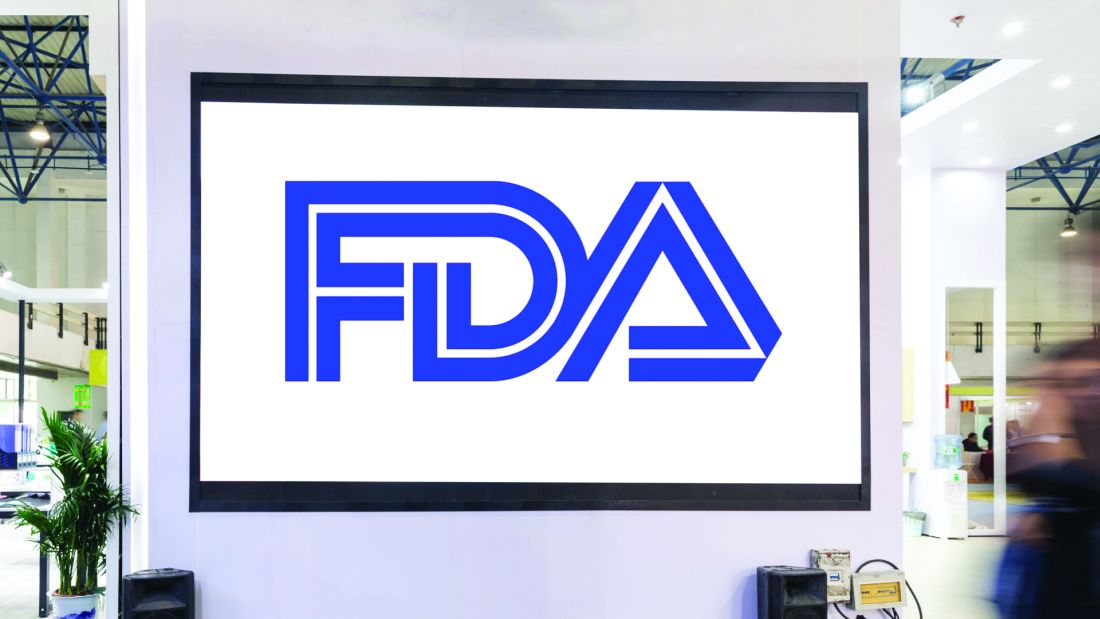User login
AGA, ACG, ASGE and SAGES were represented by three physicians who made oral remarks to the panel: Michael Kochman, MD, AGAF, Wilmott Professor of Medicine and Surgery at the University of Pennsylvania; Bret Petersen, MD, FASGE, professor of medicine and advanced endoscopist at the Mayo Clinic in Rochester, Minn. and Danielle Walsh, MD, associate professor of surgery at East Carolina University.
The GI societies over-arching goal is to ensure patient safety and ready access to clinically indicated procedures employing duodenoscopes and other elevator-channel endoscopes.
The panel discussed the adequacy/margin of safety for high-level disinfection, as well as the challenges and benefits of sterilization for routine for duodenoscope reprocessing. The panel’s consensus was that cleaning is the most important step in duodenoscope reprocessing. The panel noted that in properly cleaned duodenoscopes, high-level disinfection is appropriate; however, panel members acknowledged that reports indicate that duodenoscopes are not properly cleaned. The panel also discussed the challenges of implementing sterilization of duodenoscopes, such as potential decreased patient access to endoscopic retrograde cholangiopancreatography (ERCP) and increased costs.
On behalf of the GI societies, Dr. Kochman and Dr. Petersen proposed several overarching principles for the future evolution of our clinical practices focusing on patient safety and outcomes:
We encourage embracing multiple solutions, using a measured step-wise approach to the transition with both iterative and novel devices and processes.
We encourage data-based solutions addressing real-world efficacy while incorporating ongoing surveillance of processes and performance to ensure that early trouble signals are detected.
We believe that device or reprocessing transitions can be incorporated over the lifecycle of current instrumentation, to eliminate the potential for gaps in accessibility of care and to ensure that there is adequate efficacy and safety data to support the adoption of new technology.
We accept minimizing extensive premarket studies, while expecting vigilant post-market surveillance, for technologies or device changes made exclusively with intent to convert to conceptually more safe designs without significant changes in mechanism or function.
We support the addition of durability testing for devices undergoing both standard reprocessing and, in particular, those undergoing sterilization.
Our societies are prepared to support and participate in continued discussion regarding:
Mandatory servicing and inspections.
Mandatory device retirement for reusable devices.
Assessment of the role and standards for third-party inspection and repair.
Our societies strongly support the importance and oversight of succinct, practical, reproducible, user-friendly guidance in manufacturers’ instructions for use (IFUs), which should incorporate post-market validation studies and updates.
We recommend that devices that incorporate programmable features (AERs, washers, sterilizers) should have lock-down mechanisms in place to prevent both user and manufacturer from deviating from the FDA-cleared IFU parameters for the device.
Our societies, as well as numerous guidelines, include high-level disinfection as a currently acceptable option for endoscope reprocessing, assuming use of enhanced washing and drying standards of practice.
Finally, we support the FDA in its efforts to convey to companies the necessary endpoints and goals for performance and expectations relative to post-market review and development of new data to ensure efficacy in the community.
Our societies appreciated this opportunity to comment on the complex and critical topic at hand. Our over-arching goal as physicians remains that of ensuring patient safety and ready access to clinically indicated procedures employing duodenoscopes and other elevator-channel endoscopes.
AGA, ACG, ASGE and SAGES were represented by three physicians who made oral remarks to the panel: Michael Kochman, MD, AGAF, Wilmott Professor of Medicine and Surgery at the University of Pennsylvania; Bret Petersen, MD, FASGE, professor of medicine and advanced endoscopist at the Mayo Clinic in Rochester, Minn. and Danielle Walsh, MD, associate professor of surgery at East Carolina University.
The GI societies over-arching goal is to ensure patient safety and ready access to clinically indicated procedures employing duodenoscopes and other elevator-channel endoscopes.
The panel discussed the adequacy/margin of safety for high-level disinfection, as well as the challenges and benefits of sterilization for routine for duodenoscope reprocessing. The panel’s consensus was that cleaning is the most important step in duodenoscope reprocessing. The panel noted that in properly cleaned duodenoscopes, high-level disinfection is appropriate; however, panel members acknowledged that reports indicate that duodenoscopes are not properly cleaned. The panel also discussed the challenges of implementing sterilization of duodenoscopes, such as potential decreased patient access to endoscopic retrograde cholangiopancreatography (ERCP) and increased costs.
On behalf of the GI societies, Dr. Kochman and Dr. Petersen proposed several overarching principles for the future evolution of our clinical practices focusing on patient safety and outcomes:
We encourage embracing multiple solutions, using a measured step-wise approach to the transition with both iterative and novel devices and processes.
We encourage data-based solutions addressing real-world efficacy while incorporating ongoing surveillance of processes and performance to ensure that early trouble signals are detected.
We believe that device or reprocessing transitions can be incorporated over the lifecycle of current instrumentation, to eliminate the potential for gaps in accessibility of care and to ensure that there is adequate efficacy and safety data to support the adoption of new technology.
We accept minimizing extensive premarket studies, while expecting vigilant post-market surveillance, for technologies or device changes made exclusively with intent to convert to conceptually more safe designs without significant changes in mechanism or function.
We support the addition of durability testing for devices undergoing both standard reprocessing and, in particular, those undergoing sterilization.
Our societies are prepared to support and participate in continued discussion regarding:
Mandatory servicing and inspections.
Mandatory device retirement for reusable devices.
Assessment of the role and standards for third-party inspection and repair.
Our societies strongly support the importance and oversight of succinct, practical, reproducible, user-friendly guidance in manufacturers’ instructions for use (IFUs), which should incorporate post-market validation studies and updates.
We recommend that devices that incorporate programmable features (AERs, washers, sterilizers) should have lock-down mechanisms in place to prevent both user and manufacturer from deviating from the FDA-cleared IFU parameters for the device.
Our societies, as well as numerous guidelines, include high-level disinfection as a currently acceptable option for endoscope reprocessing, assuming use of enhanced washing and drying standards of practice.
Finally, we support the FDA in its efforts to convey to companies the necessary endpoints and goals for performance and expectations relative to post-market review and development of new data to ensure efficacy in the community.
Our societies appreciated this opportunity to comment on the complex and critical topic at hand. Our over-arching goal as physicians remains that of ensuring patient safety and ready access to clinically indicated procedures employing duodenoscopes and other elevator-channel endoscopes.
AGA, ACG, ASGE and SAGES were represented by three physicians who made oral remarks to the panel: Michael Kochman, MD, AGAF, Wilmott Professor of Medicine and Surgery at the University of Pennsylvania; Bret Petersen, MD, FASGE, professor of medicine and advanced endoscopist at the Mayo Clinic in Rochester, Minn. and Danielle Walsh, MD, associate professor of surgery at East Carolina University.
The GI societies over-arching goal is to ensure patient safety and ready access to clinically indicated procedures employing duodenoscopes and other elevator-channel endoscopes.
The panel discussed the adequacy/margin of safety for high-level disinfection, as well as the challenges and benefits of sterilization for routine for duodenoscope reprocessing. The panel’s consensus was that cleaning is the most important step in duodenoscope reprocessing. The panel noted that in properly cleaned duodenoscopes, high-level disinfection is appropriate; however, panel members acknowledged that reports indicate that duodenoscopes are not properly cleaned. The panel also discussed the challenges of implementing sterilization of duodenoscopes, such as potential decreased patient access to endoscopic retrograde cholangiopancreatography (ERCP) and increased costs.
On behalf of the GI societies, Dr. Kochman and Dr. Petersen proposed several overarching principles for the future evolution of our clinical practices focusing on patient safety and outcomes:
We encourage embracing multiple solutions, using a measured step-wise approach to the transition with both iterative and novel devices and processes.
We encourage data-based solutions addressing real-world efficacy while incorporating ongoing surveillance of processes and performance to ensure that early trouble signals are detected.
We believe that device or reprocessing transitions can be incorporated over the lifecycle of current instrumentation, to eliminate the potential for gaps in accessibility of care and to ensure that there is adequate efficacy and safety data to support the adoption of new technology.
We accept minimizing extensive premarket studies, while expecting vigilant post-market surveillance, for technologies or device changes made exclusively with intent to convert to conceptually more safe designs without significant changes in mechanism or function.
We support the addition of durability testing for devices undergoing both standard reprocessing and, in particular, those undergoing sterilization.
Our societies are prepared to support and participate in continued discussion regarding:
Mandatory servicing and inspections.
Mandatory device retirement for reusable devices.
Assessment of the role and standards for third-party inspection and repair.
Our societies strongly support the importance and oversight of succinct, practical, reproducible, user-friendly guidance in manufacturers’ instructions for use (IFUs), which should incorporate post-market validation studies and updates.
We recommend that devices that incorporate programmable features (AERs, washers, sterilizers) should have lock-down mechanisms in place to prevent both user and manufacturer from deviating from the FDA-cleared IFU parameters for the device.
Our societies, as well as numerous guidelines, include high-level disinfection as a currently acceptable option for endoscope reprocessing, assuming use of enhanced washing and drying standards of practice.
Finally, we support the FDA in its efforts to convey to companies the necessary endpoints and goals for performance and expectations relative to post-market review and development of new data to ensure efficacy in the community.
Our societies appreciated this opportunity to comment on the complex and critical topic at hand. Our over-arching goal as physicians remains that of ensuring patient safety and ready access to clinically indicated procedures employing duodenoscopes and other elevator-channel endoscopes.

